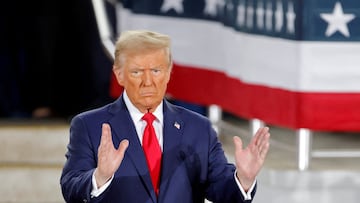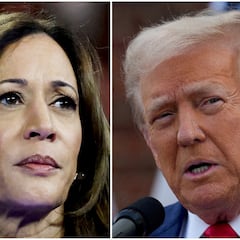Did Donald Trump win the Popular Vote in 2024? What about in 2016 or 2020?
While the citizens' choice doesn’t decide the president, taking the majority can really push the mandate claim.


In the United States, the president is not directly elected by the overall number of votes across the country; known as the ‘popular vote’. After Americans cast their ballots, it is the Electoral College that decides who takes office, and this does not necessarily reflect the popular vote in US presidential elections.
On four occasions, presidential candidates have won the national popular vote but were denied the presidency due to the Electoral College decision. This body has 538 members, and to be elected president, a candidate must secure at least 270 electoral votes. More on that below.
Donald Trump and the popular vote
After securing enough electoral votes by state, crushing Kamala Harris in the key battleground areas, attention then turned to the popular vote. And sure enough, while not all votes have been counted, he’s definitely going to take that too.
At the time of writing, Trump has 71,375,192 votes (51%) with Harris on 66,441,134 votes (47.5%), a sizeable difference that won’t be flipped. Even in his victory speech late on Tuesday he referred to how pleased he was with that.
This is especially true given that in both 2016 and 2020 he lost the popular vote to Hilary Clinton and Joe Biden, respectively. Clinton won by nearly three million more votes nationally than Trump, however, he secured 77 more electors by winning key states with significant representation, giving him the majority in electoral votes, and the White House.
Donald Trump gives his victory speech after being elected. 🇺🇸pic.twitter.com/LYl7ZPTnQn
— DramaAlert (@DramaAlert) November 6, 2024
How the popular vote works
The popular vote is essentially the citizens' choice, the ballot they cast. It represents the people’s preference, but it is not the vote that ultimately determines the US president. The popular vote serves as a guide for the Electoral College, which then votes for the presidential candidate.
Typically, members of the Electoral College, known as electors, respect the popular vote results and select the candidate chosen by the citizens. However, there is no law requiring them to vote according to their state‘s election results. The background to the founders’ decision is fascinating.
How the Electoral College vote works
Each state is allocated a certain number of electors, and thus votes, based on its population size. As a result, each state carries a different weight in the election, giving voters in some states significantly more real power than those in others.
The Electoral College vote is the final selection of the US president. State electors gather to officially vote, and Congress officially stamps confirmation of the results in January.
Difference between popular vote and the Electoral College vote
Related stories

Harris and Trump know 270 is the magic number
In short, the popular vote is the total number of direct votes cast by citizens across the United States, reflecting the general preference of voters. Meanwhile, the Electoral College vote is the decisive system of election. This difference means that not all citizens have equal influence, allowing a candidate with fewer votes than their opponent to become president.
Follow all the latest breaking news right here with AS USA, and we’ll be keeping you abreast all the way until the new resident of the White House has been announced, as well as all the reaction.

Complete your personal details to comment